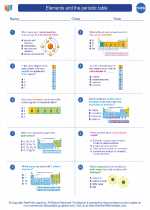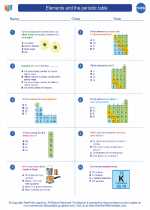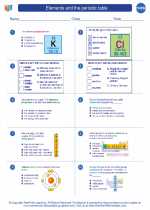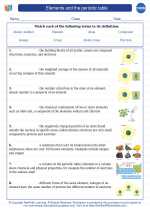Growth in Chemistry
In chemistry, growth can refer to several different concepts, including the growth of crystals, the growth of chemical reactions, and the growth of populations of atoms or molecules. Understanding the principles of growth is important for studying the behavior of substances and reactions in various chemical processes.
Growth of Crystals
When a solid substance forms from a solution, the process often involves the growth of crystals. This occurs when individual molecules or ions in the solution come together in a specific arrangement, forming a solid structure with a repeating pattern. Factors such as temperature, pressure, and the composition of the solution can all influence the rate and size of crystal growth.
To study the growth of crystals, it is important to understand concepts such as supersaturation, nucleation, and crystal growth kinetics. These principles help explain how crystals form and grow in different conditions, and are important for applications in materials science, pharmaceuticals, and many other fields.
Growth of Chemical Reactions
Chemical reactions can also exhibit growth, particularly in the context of reaction kinetics. The rate of a chemical reaction can be influenced by factors such as temperature, concentration of reactants, and the presence of catalysts. Understanding how these factors affect the rate of reaction growth is crucial for designing and optimizing chemical processes.
Studying reaction growth often involves concepts such as reaction mechanisms, rate laws, and reaction order. These principles help chemists predict and control the growth of chemical reactions, and are fundamental to many areas of chemistry, including catalysis, environmental chemistry, and industrial processes.
Growth of Populations
On a molecular level, the growth of populations of atoms or molecules can be studied using concepts from statistical thermodynamics and chemical kinetics. For example, the growth of a population of molecules in a gas phase reaction can be analyzed using principles such as the Boltzmann distribution and collision theory.
Understanding the growth of populations is important for predicting the behavior of chemical systems, such as the equilibrium composition of a reaction mixture or the distribution of molecular velocities in a gas. These principles are essential for understanding and manipulating chemical systems in fields such as physical chemistry, quantum chemistry, and molecular biology.
Study Guide
To study the topic of growth in chemistry, it is important to review the following key concepts and principles:
- Crystal growth mechanisms, including nucleation and crystal growth kinetics
- Factors influencing the growth of crystals, such as temperature, pressure, and solution composition
- Chemical reaction kinetics and the factors influencing reaction growth rates
- Reaction mechanisms, rate laws, and reaction order
- Principles of statistical thermodynamics and population growth in chemical systems
- Applications of growth principles in materials science, pharmaceuticals, industrial chemistry, and other fields
By understanding and applying these concepts, students can develop a comprehensive understanding of growth in chemistry and its significance in various chemical processes and applications.
[Growth] Related Worksheets and Study Guides:
.◂Chemistry Worksheets and Study Guides High School. Elements and the periodic table

 Worksheet/Answer key
Worksheet/Answer key
 Worksheet/Answer key
Worksheet/Answer key
 Vocabulary/Answer key
Vocabulary/Answer key
 Vocabulary/Answer key
Vocabulary/Answer key
 Vocabulary/Answer key
Vocabulary/Answer key
